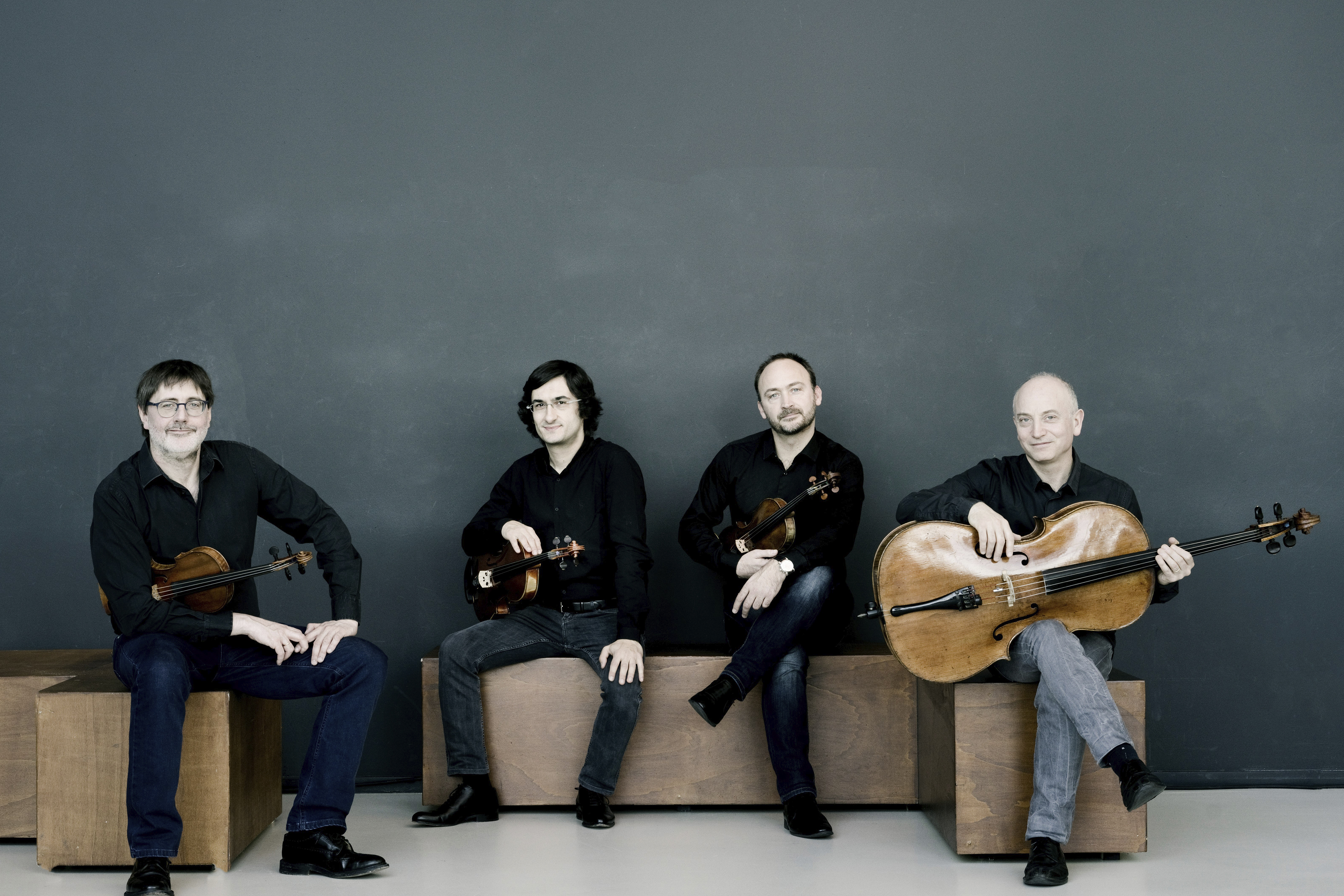An Afternoon of Beethoven: The String Quartets Nos. 15 and 13 with the Great Fuge
Tickets & datesAbout the production
Start
4 p.m.
End
5:30 p.m.
Following the opening of the Lausitz Festival’s presentation of the late Beethoven string quartets in the morning, the Quatuor Danel’s performance of the complete quartets in the order of their composition will continue in the afternoon with the five-movement No. 15 in A minor, Op. 132, from the year 1825. A peaceful middle movement is framed by four dance movements, making this formally experimental quartet in the unusual key of A minor similar to a divertimento. Beethoven headed the third movement, with its chorale-like passages, with the description »Holy song of thanksgiving from a convalescent to the Deity, in the Lydian mode« – a reference to the fact that a serious illness had forced him to suspend work on the piece for several weeks. Energetic passages are marked with the words »feeling new strength«, making the battle against physical decline clearly audible. After the first performance, a critic found the music »grand, delightful, unconventional, surprising, and original – but not only does it need to be heard repeatedly, it actually should be studied.«
The String Quartet No. 13 in B-flat major, Op. 130, with a total of six movements, will be played in this performance in the original version including the Great Fuge, which Beethoven later replaced with a more conventional movement at the request of his publisher. One critic in the year of the work’s premiere described the fugue movement as »incomprehensible, like Chinese.« In the years since, experts have debated whether Beethoven’s alteration was musically motivated or a submission to marketing pressures. At any rate, the masterly fugue movement, later published separately, has come to be seen as an anticipation of future musical developments. Stravinsky said, »The Great Fuge now seems to me the most perfect miracle in the history of music. It is also the most absolutely contemporary piece of music I know, and it will be contemporary forever.« The quartet’s first movement, like the first movements of Nos. 14 and 15, is based on a four-note motif – G-sharp, A, F, E. The movement has three themes and retains only loose connections to sonata form. Early biographers noted the composer’s particular attachment to the fifth movement, a lyrical three-part Cavatine. Lenz wrote that Beethoven »actually shed tears of sorrow while composing it and confessed to me that never before had his own music had such an effect on him, and that even thinking of this piece brought new tears to his eyes.«
Quatuor Danel
Das belgische Quatuor Danel wurde 1991 gegründet und ist heute auf allen großen Konzertbühnen der Welt zuhause. In seiner jetzigen Besetzung mit Marc Danel (Violine), Gilles Millet (Violine), Vlad Bogdanas (Bratsche) und Yovan Markovitch (Cello) spielt es seit 2014. Viele Aufnahmen seiner umfangreichen Diskographie wurden mit internationalen Preisen ausgezeichnet.
Das Quartett wird gerühmt für seine Interpretationen ganzer Streichquartett-Œuvres. Dabei spielen russische Komponisten wie Schostakowitsch eine besondere Rolle. Es ist zudem das erste Ensemble, das sämtliche 17 Quartette von Mieczysław Weinberg eingespielt und als gesamten Zyklus in Manchester und Utrecht live aufgeführt hat. Als Uraufführungsquartett arbeitet es darüber hinaus regelmäßig mit zeitgenössischen Komponisten zusammen, darunter Wolfgang Rihm, Helmut Lachenmann, Sofia Gubaidulina, Jörg Widmann und Bruno Mantovani. Zu seinen musikalischen Partnern gehören Künstler wie Leif Ove Andsnes, Jean-Efflam Bavouzet, Alexander Melnikov, Adrien La Marca, Clemens Hagen oder das Borodin Quartet. Das Quatuor Danel ist Quartet in residence an der University of Manchester.
Artists
Violine Marc Danel
Violine Gilles Millet
Bratsche Vlad Bogdanas
Cello Yovan Markovitch
Location
Location Grüner Saal, Schloss Branitz
Address Robinienweg 5, 03042 Cottbus / Chóśebuz

Cooperation partners



